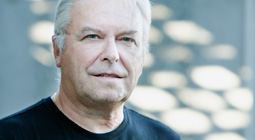CANCELED: Probing Arts at the Pivot of East and West, the View from Singapore and its Region: Subjectivity, Subjectivation, Hauntology & Futures Projections
THIS EVENT HAS BEEN CANCELED DUE TO A MEDICAL CHALLENGE
Please join the Committee on Social Theory for the third speaker in our Spring 2024 Speaker Series on the theme of Global Asias happening on Friday, April 12 at 2 pm ET in the UKAA Auditorium in the William T. Young Library with Dr. Michael M.J. Fischer!
This series will be featuring guest speakers engaging with interdisciplinary approaches across the humanities and social sciences to address the intensified contestation about Asia in light of the shifting geopolitical dynamics in the Asia-Pacific area and globally. The framing seminar which incorporates these guest speakers, ST 690/ MCL 525/ GWS 595: Global Asias, is co-taught by Dr. Liang Luo and Dr. Charlie Yi Zhang.
Lecture Abstract
This talk presents the outline of my sojourns (both longer and shorter) in Singapore and Southeast Asia over the past decade and the larger research project with which I was engaged. I will start with a prequel, then talk about the two books, and end with thoughts, if I have time, about a third book which was supposed to have been the first, on theater – theater because theater is a spot, a space, or a set of tactics of social and cultural critique, in which different positions, political positions, sexual mores, and other social tensions can be staged and where liberalization of society can be leveraged. Why Singapore? what is Singapore that we should be mindful of it? It is a tiny if very important node in global logistics, oil and finance. Once caught in the vice of the Cold War, and now again in the emerging new Cold War, between arguments about political modes of governance and hard geopolitics that I allude to in the title of the 2nd book, following current geopolitics (and the Obama administration’s announcement of a pivot to Southeast Asia and the South China Sea) and a struggle between East and West, meaning in this case between China and the United States. I’ll begin in the heady optimistic days around 2009 when I was first going to Singapore with three questions that I initially used to describe my larger project: how to create a new world class scientific community which Singapore was attempting to do; how to reform the university system from teaching universities to world competitive research universities; and thirdly how to create a space for an art scene that functions as public space for social and cultural critique, and how that art scene could have an effect in changing the local social imaginary or what I was still calling the social common sense or sensus communis.





 Dr. Derek Gregory is a member of the Department of Geography and one of two Peter Wall Distinguished Professors at the Peter Wall Institute for Advanced Studies at the University of British Columbia in Vancouver, Canada. Dr. Gregory trained as an historical geographer at the University of Cambridge. His research focused on the historical geography of industrialization and on the relations between social theory and human geography and explored a range of critical theories that showed how place, space, and landscape have been involved in the operation and outcome of social processes. His 1982 book, Regional Transformation and Industrial Revolution, was staged on the classic ground of E.P. Thompson’s Making of the English Working Class. Following a move to Vancouver in 1989, Gregory’s work was reinforced by postcolonial critique, outlined in his 1989 book Geographical Imaginations. This new phase of work owed much to Edward Said’s critique of Orientalism, but it was much more concerned with the corporeality and physicality of travel – with embodied subjects moving through material landscapes – and with the constantly changing (often mislaid) cultural baggage of the travelers. And it paid attention what travelers mapped, sketched, and photographed – and to the consequences these representations had for their encounters.
Dr. Derek Gregory is a member of the Department of Geography and one of two Peter Wall Distinguished Professors at the Peter Wall Institute for Advanced Studies at the University of British Columbia in Vancouver, Canada. Dr. Gregory trained as an historical geographer at the University of Cambridge. His research focused on the historical geography of industrialization and on the relations between social theory and human geography and explored a range of critical theories that showed how place, space, and landscape have been involved in the operation and outcome of social processes. His 1982 book, Regional Transformation and Industrial Revolution, was staged on the classic ground of E.P. Thompson’s Making of the English Working Class. Following a move to Vancouver in 1989, Gregory’s work was reinforced by postcolonial critique, outlined in his 1989 book Geographical Imaginations. This new phase of work owed much to Edward Said’s critique of Orientalism, but it was much more concerned with the corporeality and physicality of travel – with embodied subjects moving through material landscapes – and with the constantly changing (often mislaid) cultural baggage of the travelers. And it paid attention what travelers mapped, sketched, and photographed – and to the consequences these representations had for their encounters.